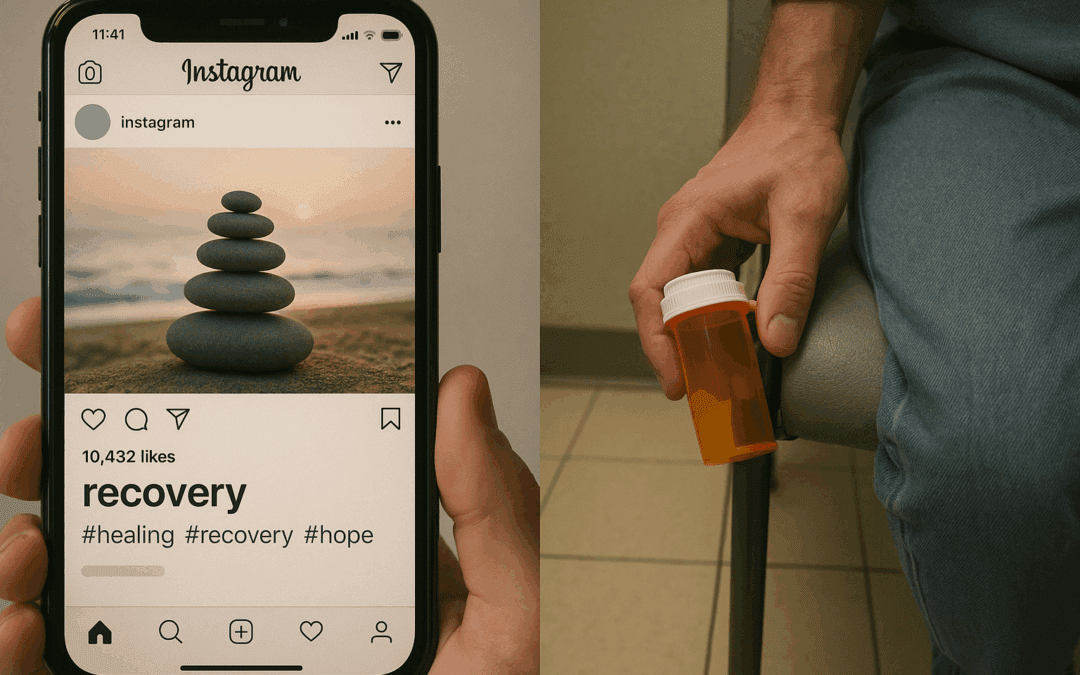
Your One-Stop Solution for Tailored Mental Health and Substance Misuse Content
Picture this: It's 3 AM in suburban Phoenix. A mother's fingers hover over her phone's keyboard, backspacing and retyping the same Google search for the seventh time. "Help my son’s addiction." Delete. "Best treatment center Arizona." Delete. "How do I know if rehab...

Why Recovery Month Content Feels Like It Was Written by People Who’ve Never Sat in Crisis
What if the very stories and guides designed to reach families in crisis feel flat, clinical, or even performative—leaving loved ones more adrift than before? Every September, digital feeds overflow with Recovery Month articles, yet precious few ring true for those...

Debunking Mental Health Myths: A Leadership Approach to Content
What if everything you thought you knew about mental health was wrong? For years, society has recycled the same damaging mental health myths: “Mental illness is a weakness.” “Addiction is just bad choices.” “Therapy is only for people with serious problems.” But...

A Practical Guide to Preventing Burnout and Thriving as a Therapist
Did you know 52% of mental health practitioners reported burnout last year? Even more alarming, 29% are currently feeling the weight of burnout. You're not alone in this struggle. Globally, burnout prevalence among psychotherapists ranges from 6% to about 54%. A...

Useful Strategies for Successful Mental Health Marketing Campaigns
With one in four people facing mental health issues, your marketing could be a lifeline. Learn to craft campaigns that build hope, not just awareness. Learn to turn readers into clients. Connect with them on a personal level and meet them where they are. Set clear...

Empowering Women Navigating Their Mental Health and Addiction Recovery in the Era of Self-Care
Commemorating International Women’s Day 2024 Women, you are the weavers of dreams You are the moon that lights up the night The sun that warms the day The stars that guide us through the darkness The embodiment of God's feminine part A beacon of strength, beauty, and...

Embracing Trauma-Informed and Gender-Responsive Approaches for Integrated Dual Diagnosis Care
Dual diagnoses between mental health and substance misuse are complex and require a holistic approach. Over 40% of substance use disorder patients have co-occurring mental health conditions, leading to extended recovery periods, higher relapse rates, and lower quality of life. Integrated treatment involving a multidisciplinary team, personalized, trauma-informed care, and gender-responsive approaches is crucial for managing dual diagnoses effectively.

The Pivotal Role of Online Content in Shaping Perceptions and Engagement in Psychotherapy and Addiction Recovery Treatment
Online content is crucial in psychotherapy and substance misuse rehab services, providing insights and guidance for mental health and addiction recovery. Informative and compassionate content enhances understanding, engagement, and trust. Ethical approaches ensure confidentiality, up-to-date information, and respect for clients’ rights. Balanced content promotes recovery, upholds professional and ethical standards, and fosters a supportive online space.

Bridging the Gap for the Shattered but Not Broken: Addressing Mental Health Disparities in Underserved Communities
Mental health, an intricate facet of our overall well-being, often takes a backseat in our collective consciousness. This oversight is particularly glaring in underserved communities, where striking disparities in mental health care access, quality, and outcomes...

Unmasking the Unsaid: The Urgent Necessity of Self-Care for Mental Health Professionals
Mental health professionals face stressors like burnout, vicarious trauma, long working hours, and ethical dilemmas that impact their mental well-being. To address these challenges, they must develop self-care strategies, advocate for institutional changes, and prioritize their well-being. These strategies include maintaining a balanced diet, regular exercise, and sleep, addressing emotional responses, continuing professional development, and nurturing healthy relationships. By prioritizing self-care, mental health professionals can provide better care and contribute to the overall well-being of their profession.
